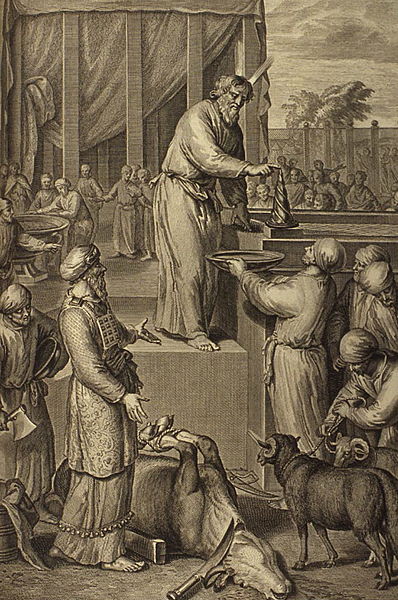Podcast: Play in new window | Download (Duration: 1:27:03 — 119.5MB) | Embed
Subscribe: Apple Podcasts | More

This work is licensed under a Creative Commons Public Domain Mark 1.0 License.
Christ Our Offering with Communion
You know what I find tragically humorous? Although we humans have been sinning since the beginning, we still don’t know exactly how to define it. Even though there is probably nothing more consistent in the human condition, we still can’t agree on what sin is. We seem to bicker and debate about it. Sometimes the arguments are even with ourselves. Sometimes, in order to dampen a stinging conscience over something we did, we may try to convince ourselves that as long as no one dies, I’m still okay. We try to persuade our critical inner voice that an act or a behavior has to be salacious or violent or oppressing to be labeled sin; everything else can be ignored. The church doesn’t help much. There are places where saying a swear word or looking at a girl’s ankles will get you banished to the sinner’s bench. And, then, there are other places that like to tell you that there is some sort of sin hierarchy. There are “big” sins like murder and rape. No one is allowed to do those but then we also have “little” sins like taking a wee nip of whiskey for a sore tooth or telling little white lies like, “Yes, Pastor, I did get a lot out of that message”. Those aren’t too bad and most of us can get away with them and we wouldn’t be risking hell. It’s all so confusing and not a bit of it is Scriptural.
Now, the Bible has a much simpler (and far more inclusive) definition of sin. The Hebrew and Greek original words that get translated into the English word “sin” are both descriptive and plain. In essence the literal translations are “to fall short” or “to miss the mark”. The sense is not hitting a target, an ideal, a goal. In God’s Book, “a miss is as good as a mile”. There are no such things in the Bible as little sins or big sins. (Interestingly, however, there are big sinners and little sinners. We cover a little of that in this lesson.) God gives no “wiggle room”. God does not allow you or I to define sin. God does not allow you and I or anyone to decide whether or not what we do should be categorized as “mortal” or “venial”, major or minor. Falling short is falling short. You can’t “sort-of” fall short. You can’t “kinda” miss the target. That is precisely why Paul says:
(Rom 3:23) For all have sinned…
In fact, Paul finishes that statement with a literal rendering of the Greek word. “For all have sinned, AND COME SHORT of the glory of God”.
The point? You and I are sinners and there is nothing we can do to hide our condition. God knows we’re sinners and for that we should be eternally grateful. You see, God not only knows we’re sinners but He has done something about it. Believe it or not, God loves you. You may not love yourself but He does and He has made it abundantly clear He does NOT want you apart from Him. The problem, however, is that darn sin condition. It stands between us and a Holy God. He cannot let a single sin go by; not even those sins you and I don’t seem too worried about. They must ALL be dealt with before we can be with Him forever and the Bible makes it clear (as does our own experience) that we are incapable of making any difference in our sinfulness…except make it worse.
So, then, how do we get reunited with God? We can’t approach Him with the stain of sin on us. Are we and God doomed to be eternally separated? Of course not. Nothing stands in God’s way. That’s what actually makes Him God. Nothing and no one can defeat Him, not even sin. So…and don’t ask me how but God, from the beginning, was prepared. He is our Creator and He knew we would fail so He devised a rescue plan and that rescue plan is His Son. The entire Bible speaks of this plan. The New Testament reveals the plan in Christ and the Old Testament lays it out in type and shadow so when His Son comes to rescue us, we’ll know it’s Him. No other part of Scripture paints a clearer picture of the work of Christ quite like the Book of Leviticus and, more specifically, the Law of the Offerings. Join us in this episode as we go over some of the details of this fascinating portion of God’s Word. God’s instructions to Moses on the offerings, when studied with an open mind, will greatly strengthen your faith in God’s power, mercy and love.
But before you begin, make sure to take a few moments to prepare your heart, mind and spirit by going to God in prayer. Ask Him to help you to make sense of eternal things. Pray that He send His Spirit to open up His Word so that you can apply its treasures to your life and, in the process, grow in your relationship to Him. One final note, this lesson includes a Communion celebration, so, please, pay close attention to the beginning portion for instructions.
